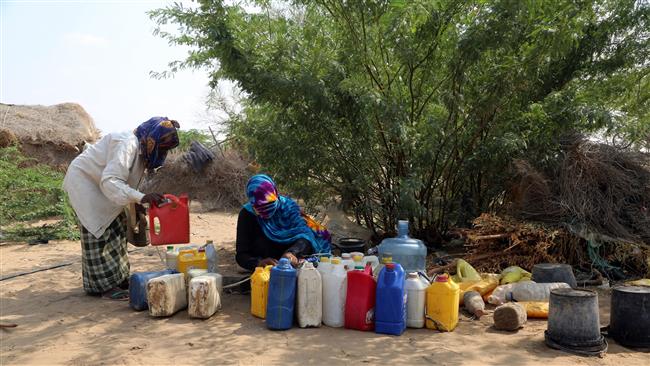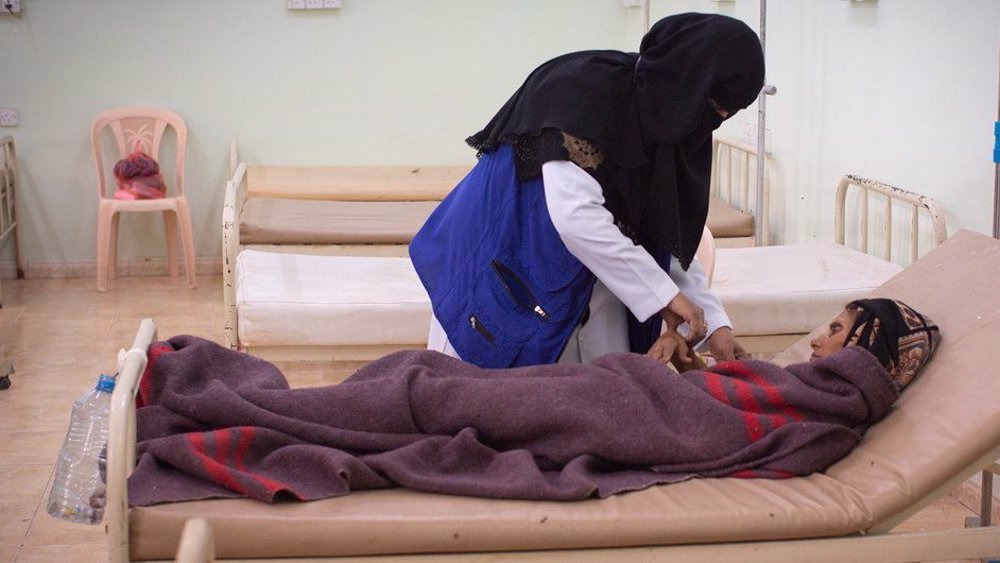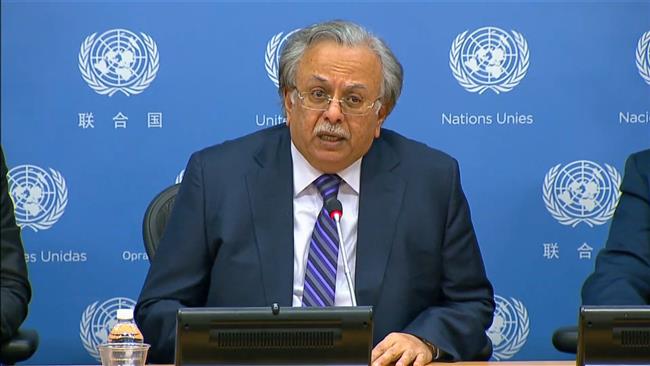OCHA urges Saudi-led coalition to open all Yemen’s sea ports
The military coalition led by Saudi Arabia should urgently open all Yemen’s sea ports amid the famine and the spread of diseases that have affected some seven million people in the war-ravaged country, a UN official has said.
Jamie McGoldrick of the UN Office for the Coordination of Humanitarian Affairs (OCHA) said Tuesday in the Swiss city of Geneva that the ongoing Saudi-led blockade risked undoing the fight against cholera and hunger.
The UN official said seven million people were already in “famine-like conditions” in Yemen.
McGoldrick went on to say that the northern region of Yemen only had 20 days’ stock of diesel, which is crucial for pumping water and battling the cholera outbreak. Yemen, he said, had 10 days’ stock of gasoline, with no prospect of resupply soon.
The United Nations says there is "no indication" that the Saudi-led coalition is lifting the naval and aerial blockade.
McGoldrick said the UN was aware of an announcement that the coalition was allowing deliveries to two ports in southern Yemen, which are controlled by pro-Saudi authorities. He said access to such ports was "helpful" but the key need was access to the Red Sea ports of Salif and Hudaydah, which are closer to large population centers and are currently inaccessible to UN aid shipments.
Saudi Arabia has been incessantly pounding Yemen since March 2015 in an attempt to crush the popular Houthi Ansarullah movement and reinstate the former president, Abd Rabbuh Mansur Hadi, who is a staunch ally of the regime in Riyadh.
Recently, the United Nations added Riyadh and its allies to a blacklist for the "killing and maiming of children."
Riyadh's deadly campaign has seriously damaged Yemen's infrastructure. Local Yemeni sources have put the death toll from Saudi airstrikes at over 14,000 people. Another 2,100 people have died of cholera since April as hospitals struggle to secure basic supplies across the country.
In late October, the World Food Programme (WFP) said that food was being used as a "weapon of war" in Yemen at a time when millions of people faced an impending famine in the impoverished Arab country.
Pakistani military conducts airstrikes on militant hideouts in eastern Afghanistan
VIDEO | Displaced settlers frustrated
VIDEO | Christmas: Time for peace
Turkey will bury Syria’s Kurdish militia if they fail to disarm: Erdogan
VIDEO | Christmas in Syria: Hope amidst uncertainty
Israel attacks eastern Lebanon for first time since ceasefire
‘Christ under rubble’: Christians in Gaza mark another Christmas amid genocide
Iran’s president extends condolences to Azerbaijan’s Aliyev over plane crash












 This makes it easy to access the Press TV website
This makes it easy to access the Press TV website